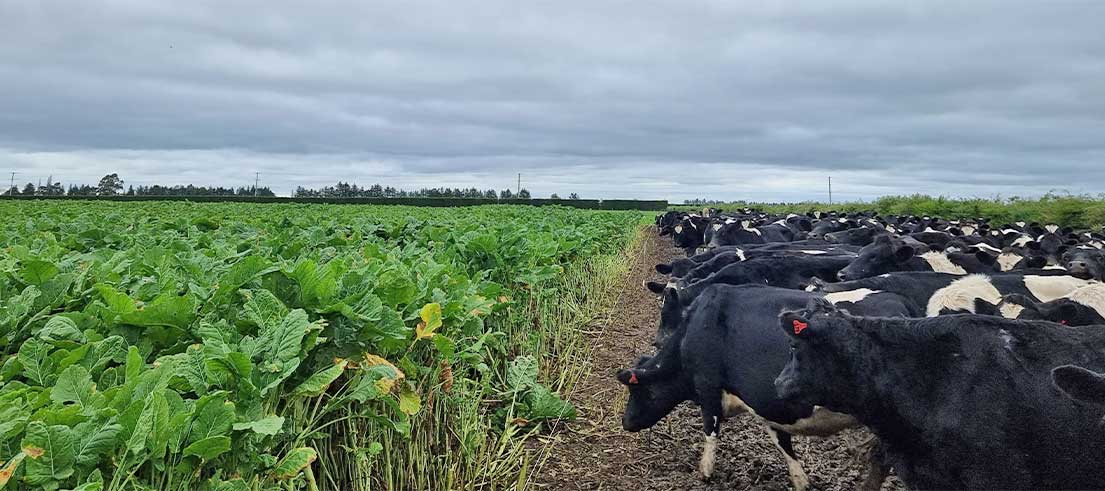
Winter grazing flights see good practice being adopted
Good paddock preparation and winter grazing practices will ensure the effects on freshwater of winter grazing in Canterbury will be minimised over winter, especially in the difficult conditions following recent heavy rain.
We undertook two mid-season monitoring flights in July, over Waimakariri and Ashburton, with field staff and industry representatives observing winter grazing in practice. These flights were a follow-up to two similar pre-season flights over the same regions earlier in the year.
Critical source area protection is vital
During our July winter grazing flights, we saw stock being excluded from waterways with good buffers in place, and effort being put into pugging management with bales laid out prior to grazing, adequate number of troughs and feeders and in more than one case the use of back fencing.
Principal Implementation Advisor, Farm Systems, Sarah Heddell said that staff saw that on most farms, paddocks had been carefully chosen to avoid critical source areas, however, where they were present, good buffers were evident in most cases.
"Given the wet weather events we’ve experienced over the past couple of winters, paddock selection is crucial to avoid critical source areas and the potential overland flow delivering contaminants to waterways," she said.
Farmer follow-up important to reinforce message
Staff noted four farms where improvements can be made. They will be following up with landowners where to ensure their winter grazing practices follow best practice and that no adverse effects on freshwater occur.
"We will also be contacting farmers where we have seen some really positive practices, especially those identified that have made considerable improvements after follow-up in the 2022 winter season," Heddell said.
"We have seen some really good practices being implemented by a lot of farmers. We also want to remind them to make sure that they are meeting the new national winter grazing regulations when they prepare for winter 2024."
As part of their follow up, staff will also ensure that farms requiring a resource consent for intensive winter grazing are on track to apply and get consent for their operation.
